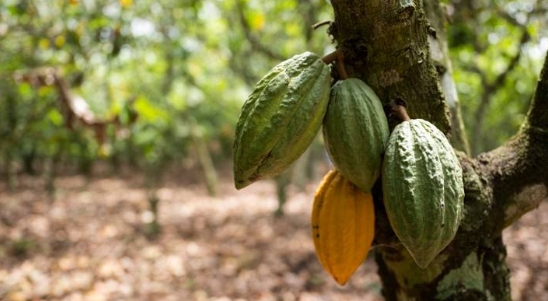The chief of staff of Côte d'Ivoire's army has suspended five officials responsible for combating cocoa smuggling following allegations of their involvement in aiding cocoa trafficking.
Côte d'Ivoire Army Suspends Officials Over Alleged Cocoa Smuggling Involvement


The chief of staff of Côte d'Ivoire's army has ordered the suspension of five officials responsible for combating cocoa smuggling in the western region of the country, according to a statement released by the army and seen by Reuters late Tuesday.
Between 50,000 and 75,000 metric tonnes of Côte d'Ivoire cocoa are estimated to have been smuggled across the western border to Guinea and Liberia since the 2024/25 season began in October, according to exporters and buyers.
The statement revealed that an investigation implicated five officials from the border town of Sipilou in trafficking activities. These officials – the town's prefect, police commissioner, head of the armed forces detachment, commander of the gendarmerie brigade, and head of the customs office – have been immediately suspended.
Large amounts of cocoa beans were reportedly smuggled into Guinea during the late December holiday period with the complicity of corrupt officials tasked with combating trafficking, as confirmed by over a dozen industry sources. Smugglers allegedly paid these officials an average of 15 million CFA ($23,500) per trailer truck, each capable of holding up to 40 tonnes of cocoa, to overlook their activities.
Traffickers in Guinea have been purchasing cocoa beans at prices ranging from 4,000 CFA to 5,000 CFA per kilogram, significantly higher than Côte d'Ivoire's official farm gate price of 1,800 CFA, driven by the surge in global cocoa prices.
In key trafficking hotspots such as Sipilou, Danane, Man, and Ouaninou, local authorities have reportedly facilitated the smuggling, with financial gains proving too lucrative to resist. Daouda Doumbia, a cocoa tracker in Côte d'Ivoire's Tonkpi Region, commented on the widespread corruption and the substantial sums involved, stating it was common knowledge in these areas.
Drissa Konate, a cocoa buyer in Ouaninou, reported witnessing several dozen trailer trucks transporting cocoa from Seguela to Guinea between October 2024 and January 2025. He expressed doubt about the possibility of curbing the smuggling, citing the considerable profits derived from the higher prices across the border.
Exporters have already noted the adverse effects of smuggling, including reduced volumes of cocoa reaching the ports. One export executive described the suspension of the implicated officials as a positive development but lamented that the action had come too late.

 বাংলা
বাংলা  Spanish
Spanish  Arabic
Arabic  French
French  Chinese
Chinese 
